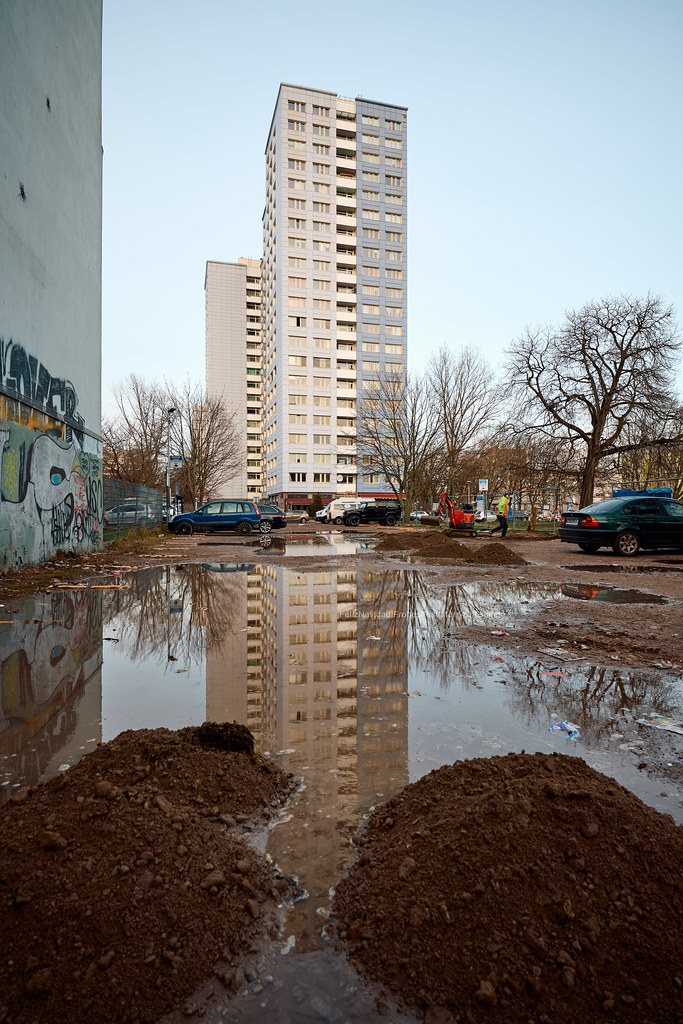#Berlin Friedrichshain-Kreuzberg
Video
Die ge-dop-pelte Platte by Pascal Volk
#Europe#Germany#Berlin#Berlin Friedrichshain-Kreuzberg#Friedrichshain#F'hain#Erich-Steinfurth-Straße#Large panel system-building#Plattenbau#Architecture#Architektur#arquitectura#Hochhaus#tower block#high-rise#apartment tower#residential tower#Wohnhaus#Spiegelung#Reflexion#Reflection#Reflexión#Reflejo#Réflexion#Wasserspiegelung#Reflexión del agua#Water Reflection#Charco#Pfütze#Puddle
6 notes
·
View notes
Text
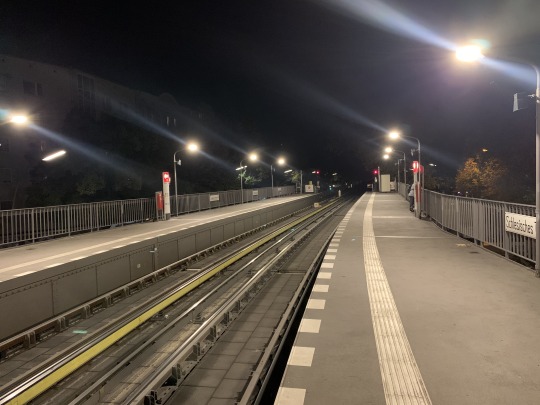
Berlin, September 2023
#Berlin#Kreuzberg#Friedrichshain#Schlesisches Tor#Germany#Subway#Metro#Underground#U-Bahn#liminalcore#liminal#liminal spaces#liminal space#silent hill#fogcore
28 notes
·
View notes
Photo
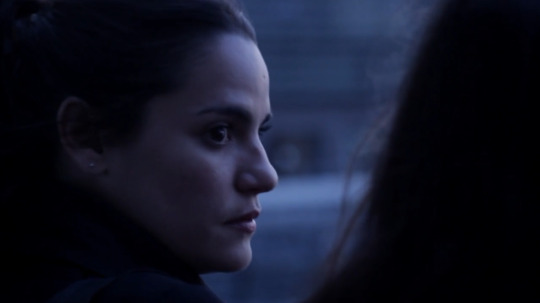
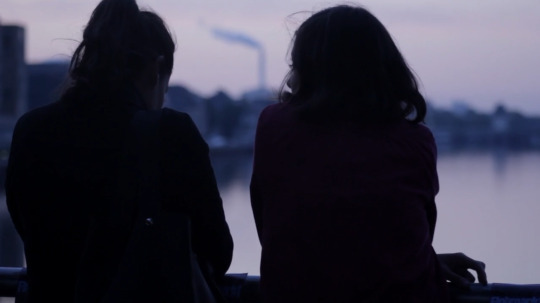


La flor / The Flower
Mariano Llinás. 2018
Bridge
Oberbaumbrücke, 10243 Berlin, Germany
See in map
See in imdb
Bonus: also in this location
#mariano llinás#la flor#the flower#pilar gamboa#oberbaumbrücke#berlin#kreuzberg#friedrichshain#bridge#germany#movie#cinema#film#location#google maps#street view#2018#bonus
10 notes
·
View notes
Text


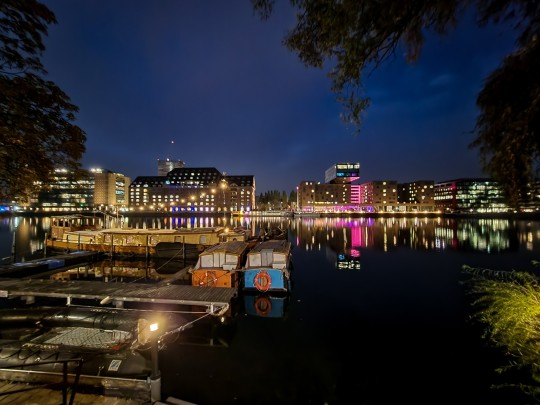
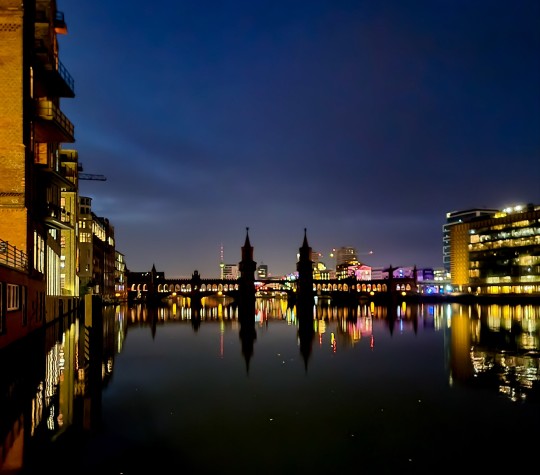
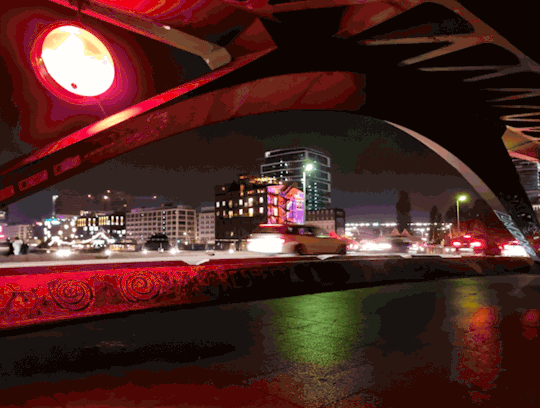

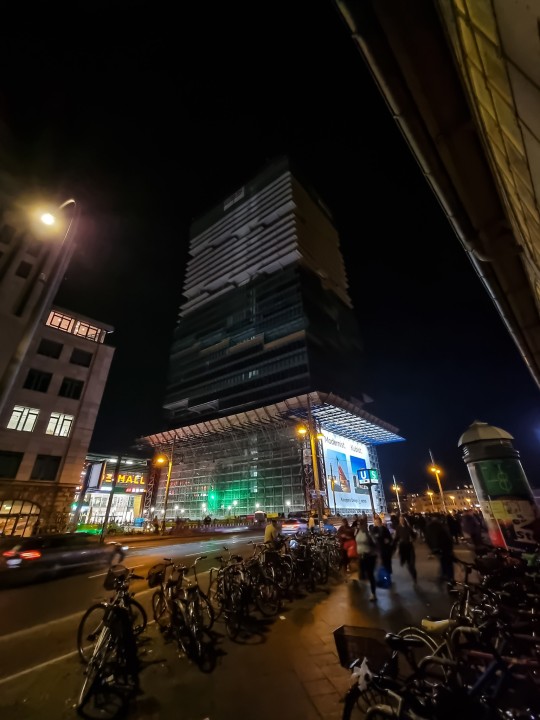
24 notes
·
View notes
Text
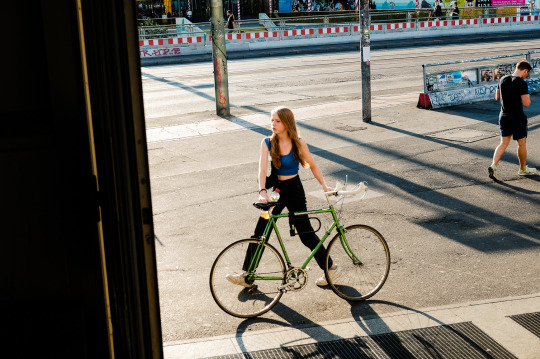
Retro Bicycle
#street photography#espritmetropol#photographers on tumblr#photography by espritmetropol#original photographers#espritmetropolphotography#berlin#espritnouveauphotography#artists on tumblr#espritmetropol-photography#friedrichshain#kreuzberg#u bahn#warschauerbrücke#warschauer straße#fujixlovers#fujifilm#fujixweekly#fujixt1#photonews#2022#moving#i love their dynamic#wearemagazine
13 notes
·
View notes
Text
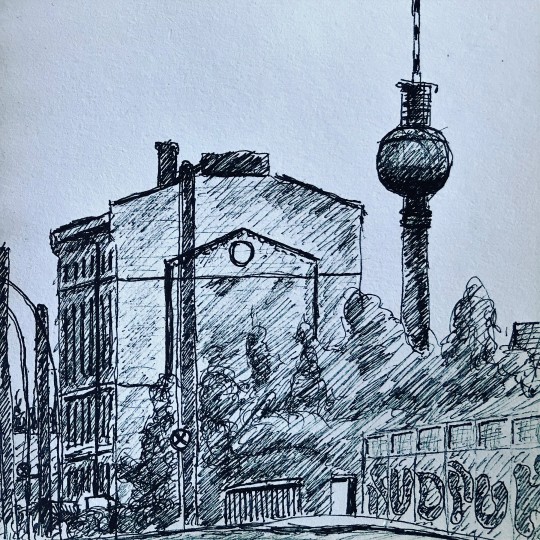
Berlin, Eldenaer Straße in Friedrichshain
#Berlin#Ostberlin#Friedrichshain#friedrichshain kreuzberg#Eldenaer#Eldenaer Straße#zeichnung#sketch#sketching#sketchbook#urbansketching#urban#urban jungle#architecture#architektur#malerei#berlin#kunst#skizze#art#harz#michael müller#südharz#fernsehturm
5 notes
·
View notes
Text
Landlords wanting to attract young professionals once scrubbed off the rebellious scrawls. That was before graffiti moved from countercultural to mainstream. Now building owners are willing to pay for it.
From Berlin to London to Miami, the wider acceptance of graffiti has attracted developers looking to expand into trendy areas, companies wanting to relocate to hipper neighborhoods and brands seeking creative ways to advertise their products.
But that attention to once overlooked neighborhoods has pushed up rents, leaving artists, fans and local officials with a quandary: What happens after the street art that brought character becomes commodified?
#gentrification#streetart#graffiti#graffiti art#mural#murales#mural art#urbanart#shoreditch#london street art#wynwood#miami street art#street art miami#stret art berlin#friedrichshain#kreuzberg
1 note
·
View note
Text
Reinigungsfirma Dienstleistungen Reinigung SMDTOP Berlin Services
SmdTop Berlin – Reinigung und Komplettlösungen für UnternehmenBeste Reinigungsfirma in Berlin
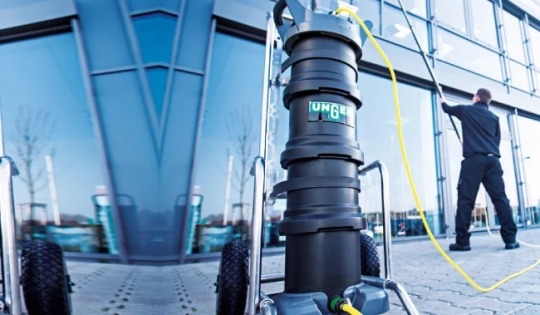
Fensterreinigung für Firmen, Betriebe und Geschäfte und Häuser
Mit SMD-TOP haben Sie einen professionellen Partner für die Fensterreinigung Ihres Unternehmens oder Geschäfts, egal wie groß es ist
Mit SmdTop aus Berlin haben Sie eine Reinigungsfirma, die Ihre Fenster mit hochwertigen Geräten und umweltfreundlichen Produkten innen und außen sauber macht.
Wir beseitigen Schmutz, Schlieren, Fingerabdrücke und Wasserflecken von Ihren Glasflächen. Wir bringen Ihre Fenster zum Strahlen und verschönern Ihr Restaurant, Hotel, Gebäude, Ihre Schule oder jeden anderen Ort, den Sie wünschen.
Nehmen Sie noch heute Kontakt mit uns auf und lassen Sie sich ein unverbindliches Angebot für unseren professionellen Service machen
#smdtop.de#Reinigungsfirma#Dienstleistungen#Berlin Services#Reinigung#Prenzlauer Berg#Kreuzberg#Mitte#Fennpfuhl#Friedrichshain#Berlin#Germany#Cleaning Company
1 note
·
View note
Photo

Feiern Sie das Osterfest mit einem besonderen Highlight Unsere talentiertere Künstlerin wird für ein unvergessliches Erlebnis für Jung und Alt sorgen. Mit seinem flauschigen Hasenkostüm und ihrer bezaubernden Persönlichkeit wird der Hase Sie und Ihre Gäste in die Osterstimmung versetzen. Egal, ob Sie eine private Osterparty, ein öffentliches Fest oder eine Firmenfeier veranstalten, unsere Künstlerin in einem niedlichen Hasenkostüm ist die perfekte Ergänzung für Ihre Veranstaltung. Der Hase wird Aktivitäten anbieten, die für jedes Alter geeignet sind, von Ostergeschichte und Eiersuche bis hin zu Fotoshootings und Ballonmodelieren für die Kids. Lassen Sie uns Ihnen helfen, Ihre Osterfeier zu einem unvergesslichen Erlebnis zu machen! Kontaktieren Sie uns noch heute, um den Hasen für Ihre Veranstaltung zu buchen. #hase #osterhase #Berlin #Ostern #Schöneberg #Pankow #neukölln #zehlendorf #prenzlberg #schöneberg #rudow #berlinmitte #friedrichshain #lichtenberg #spandau #charlottenburg #kreuzberg #tiergarten #weißensee #wilmersdorf #steglitz #tempelhof #köpenick #reinickendorf #marzahn #berlincity #liveartberlin #Kids #berlinmitkids #berlinmitkinder (hier: Berlin, Germany) https://www.instagram.com/p/Cqz6MqlM0oO/?igshid=NGJjMDIxMWI=
#hase#osterhase#berlin#ostern#schöneberg#pankow#neukölln#zehlendorf#prenzlberg#rudow#berlinmitte#friedrichshain#lichtenberg#spandau#charlottenburg#kreuzberg#tiergarten#weißensee#wilmersdorf#steglitz#tempelhof#köpenick#reinickendorf#marzahn#berlincity#liveartberlin#kids#berlinmitkids#berlinmitkinder
0 notes
Text
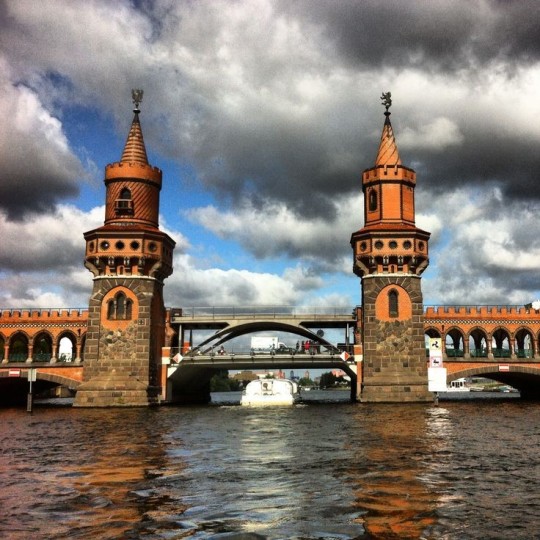
Oberbaumbrücke | Pinterest @di030
1 note
·
View note
Video
Berlin Ostbahnhof by Pascal Volk
#Europe#Germany#Berlin#Berlin Friedrichshain-Kreuzberg#Friedrichshain#F'hain#Am Ostbahnhof#Ostbahnhof#Architecture#Architektur#arquitectura#Berlin East railway station#Train station#Bahnhof#Estación de ferrocarril#People#Menschen#Leute#Wide Angle#Weitwinkel#gran angular#super wide angle#Superweitwinkel#ultra wide angle#Ultraweitwinkel#ww#wa#sww#swa#uww
2 notes
·
View notes
Text
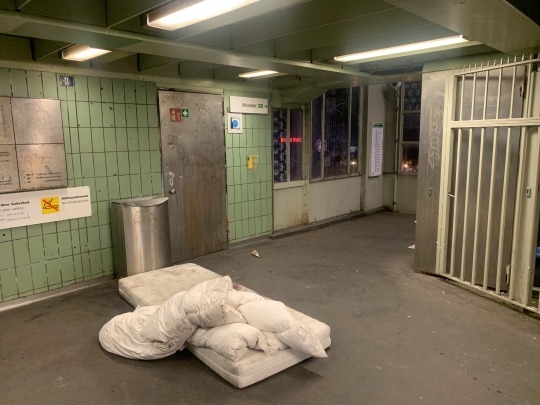
Berlin, February 2024
#Berlin#Germany#Görlitzer Bahnhof#Kreuzberg#Friedrichshain#Friedrichshain-Kreuzberg#Mattress#homeless#liminalcore#liminal#liminal space#liminal spaces#metro#subway#underground#station#Bahnhof#this is where i post from
7 notes
·
View notes
Text
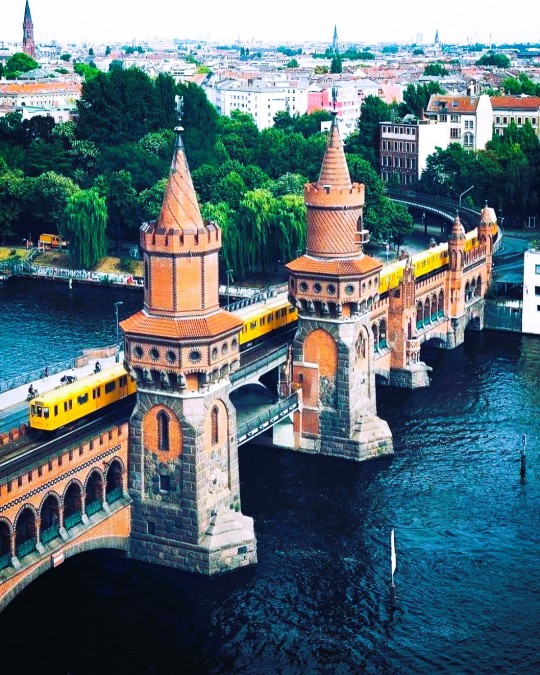
Oberbaumbrücke, Bridge, Berlin, Germany: The Oberbaum Bridge is a double-deck bridge crossing Berlin, Germany's River Spree, considered one of the city's landmarks. It links Friedrichshain and Kreuzberg, former boroughs that were divided by the Berlin Wall, and has become an important symbol of Berlin's unity. Wikipedia
69 notes
·
View notes
Note
berliner remus thoughts 🤲🤲🤲🤲
yes yes that man is sitting by an open window in freezing weather eating a single hard boiled egg and flavorless pasta salad, and he can unwittingly come across as quite unsentimental or rude or blunt, and his jokes are awful and overly literal (“a werewolf? he’s sitting in my chair!!11!1”) so remus is a damp paper towel, i agree. but these same things also make him a really stereotypical berliner schnauze
in terms of modern au it's just a funny detail that makes a lot of sense (remus is in a knit turtleneck but still stomping his way through Friedrichshain in crustie doc martens), but its more interesting to me in my personal view of canon?? like this is the 70s. it's before the fall of the iron curtain, remus is growing up in a postwar city halved by the Wall, isolated from the world by the cold war, and filled with spies and punk music and poverty
in my headcanon, remus was separated from his (bavarian) family by the wall and grows up alone as a muggle in kreuzberg, west berlin. i like the idea of remus as a penniless lycanthropic preteen at the very height of Deutschpunk, cynical but still young, going to all the shows covered in scars just looking for a place to sleep. he grows up collecting gutter cigarettes and not eating enough and sharing a filthy flat with a rotating cast of sometimes-benevolent older teens with drug problems. he sees things pragmatically and he sleeps too much and spends his full moons in the abandoned train tunnels under Potsdamer Platz and he shaves his head to fit in and he loiters, eating peanuts off the bar at all the music clubs down Oranienstraße, thinking his life is dull and lonely and monotonous and grey and wishing it could maybe be something more. and then, of course, he gets his Hogwarts letter
#remus lupin#also I think this is funny in context of Sirius's bowie obsession. doesnt even faze remus as something noteworthy#hes like Yeah that bowie guy played at Hansa last year I met him 😐 do you listen to weltaufstandsplan 😐#I just think remus is so neutral to and unfazed by all music because the most iconic punk shows of the last decade were like#the noisy backdrop to his growing pains. once again hes sitting by the bar sighing & moping (he has safety pins in his jeans)#meanwhile sirius is fucking AGHAST. OBSESSING#t#a#german remus
49 notes
·
View notes
Text

Dead or Alive
#espritmetropol#photographers on tumblr#photography by espritmetropol#original photographers#espritmetropolphotography#berlin#espritnouveauphotography#street photography#artists on tumblr#espritmetropol-photography#Kreuzberg#Friedrichshain-Kreuzberg#Friedrichshain#warschauer straße#warschauerbrücke#drunken#daylightphotography#drunken man#public#2022
7 notes
·
View notes
Text
OOR 2009 - Nr 10 - Rammstein interview
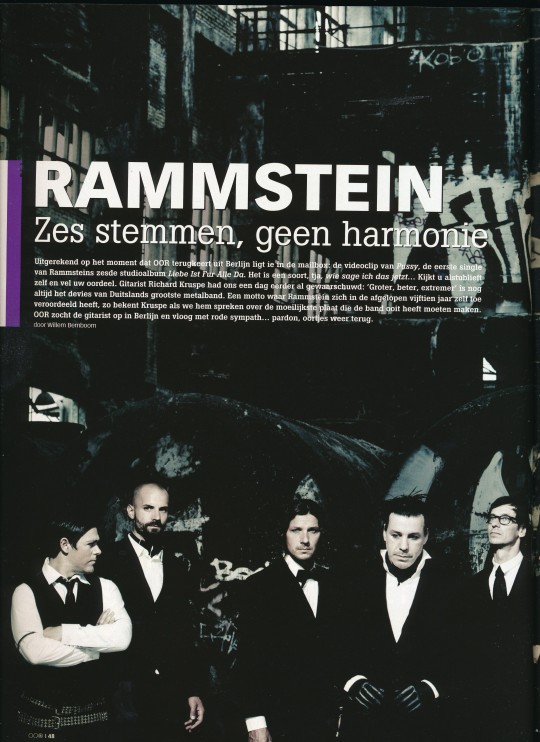
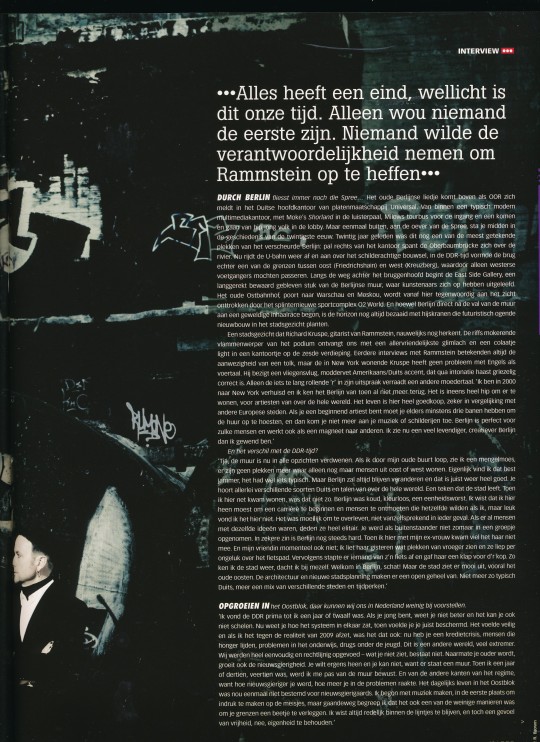
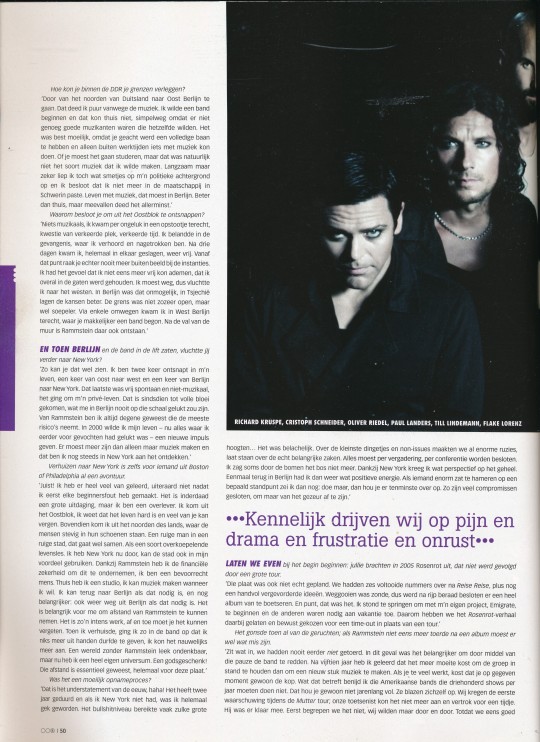
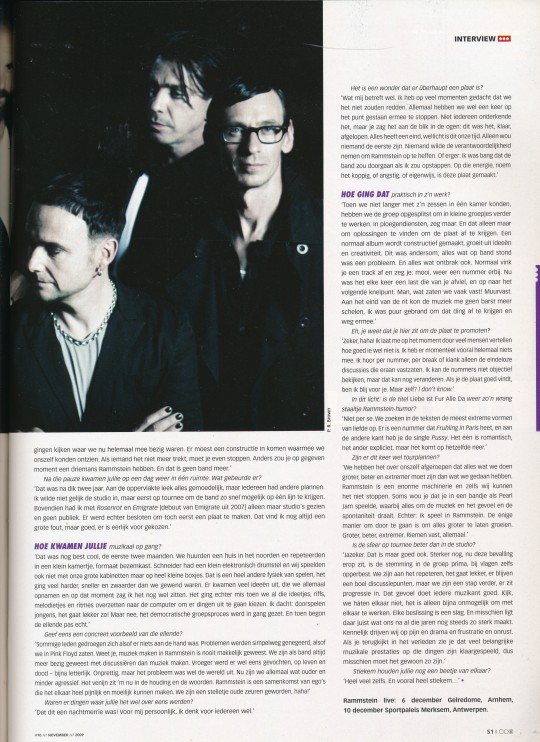
Rammstein
Six voices, no harmony
The moment OOR returns from Berlin it drops be in the mailbox: the video clip for Pussy, the first single from Rammstein's sixth studio album Liebe Ist Für Alle Da. It's a kind of, well, wie sage ich das jetzt... Please see for yourself and make your own judgement. Guitarist Richard Kruspe had already warned us the day before: "Bigger, better, more extreme" is still the motto of Germany's biggest metal band. A motto that Rammstein has condemned itself to over the past fifteen years, Kruspe admits when we speak to him about the most difficult record the band ever had to make. OOR visited the guitarist in Berlin and flew with red sympath... sorry, ears back.
by Willem Bemboom
Durch Berlin fliesst immer noch die Spree... The old Berlin song comes up when OOR reports to the German headquarters of record company Universal. Inside a typical modern multimedia office, with Moke's Shorland in the listening post, on the banks of the Spree, you are in the middle of the history of the twentieth century. Twenty years ago, this was one of the most scarred places in torn Berlin: directly to the right of the office, the Oberbaumbrücke spans the river. Nowadays the U-bahn runs back and forth over the picturesque building, but in GDR times the bridge formed one of the borders between east (Friedrichshain) and west (Kreuzberg), meaning that only western pedestrians were allowed to pass. Along the road behind the bridgehead begins the East Side Gallery, an elongated preserved part of the Berlin Wall, where artists have enjoyed themselves. The old Ostbahnhof, gateway to Warsaw and Moscow, is now hidden from view from here by the brand new O2 World sports complex. And although Berlin started a great catch-up race immediately after the fall of the wall, the horizon is still dotted with cranes that plant futuristic-looking new things in the cityscape.
A cityscape that Richard Kruspe, guitarist of Rammstein, hardly recognizes. The riff-slinging flamethrower from the stage welcomes us with the friendliest smile and a diet coke in an office on the sixth floor. Previous interviews with Rammstein always meant the presence of an interpreter, but Kruspe, who lives in New York, has no problem with English as the main language. He uses a lightning-quick, thick American/German accent, which is almost eerily correct in terms of intonation. Only the slightly too long rolling 'r' in his pronunciation betrays a different native language. "I moved to New York in 2000 and I no longer recognize the Berlin of that time. It has suddenly become very hip to live, for artists from all over the world. Life is very cheap here, especially compared to other European cities. If you are a starting artist you have to work at least three jobs elsewhere to pay the rent, and then you no longer have time for your music or paintings. Berlin is perfect for such people and also acts as a magnet to others. I now see a much more vibrant, creative Berlin than I am used to."
And the difference with the GDR period?
"Well, the wall has now disappeared in every respect. When I walk through my old neighborhood, I see a mix, there are no longer places where only people from the east or west live. I actually think that's quite a shame, it had something typical. But Berlin will always keep changing and that is a very good thing. You hear all kinds of different types of German and languages from all over the world. A sign that the city is alive. When I first moved here, that was not the case. Berlin was cold, colourless, generic. I knew I had to go here to start a career and meet people who wanted the same thing as me, but I didn't like it here. It was difficult to survive, not obvious in any case. If there were people with the same ideas, they acted very elitist. As an outsider you were not just accepted into a group. In a sense, Berlin is still hard. When I came here with my ex-wife, she did not like it And neither does my girlfriend at the moment; I showed her some places from the past yesterday and she accidentally walked on the bike path. Then someone got off his bike and hit her in the head. This way I know the city again, I thought to myself. Welcome to Berlin, baby! But the city looks beautiful, especially the old east. The architecture and new city planning make it an open whole. Not so typically German anymore, more a mix of different cities and eras."
Growing up in the Eastern Bloc is something we in the Netherlands can hardly imagine.
"I thought the GDR was fine until I was about twelve. When you're young, you don't know any better and you don't care. Now you know how the system worked, then you felt protected. safe and if I compare it to the reality of 2009, it was: now you have a credit crisis, people going hungry, problems in education, drugs among the youth. This is a different world, much more extreme. We had a very simple and straightforward upbringing - what you don't see doesn't exist. As you get older, your curiosity also grows. You want to go somewhere and you can't, because there is a wall. Only when I was about thirteen or fourteen, I became aware of the wall. And of the other sides of the regime, because the more curious you were, the more you got into trouble. Daily life in the Eastern Bloc was simply not meant for the curious. I started making music, primarily to impress the girls, but gradually I understood that it was also one of the few ways to push your boundaries a little. I always managed to stay within the lines, and then maintain a sense of freedom, no, individuality."
How were you able to push your boundaries within the GDR?
"By moving from the north of Germany to East Berlin. I did that purely because of the music. I wanted to start a band and that wasn't possible at home, simply because there weren't enough good musicians who wanted the same. It was quite difficult, because you were expected to have a full-time job and could only do something with music outside working hours. Or you had to study it, but that was of course not the kind of music I wanted to make. Slowly but surely I started to get some blemish on my political background and I decided that I no longer fit into society in Schwerin. Living with music, it had to be in Berlin. Better than at home, but it was not easy at all."
Why did you decide to escape the Eastern Bloc?
"Nothing musical, I accidentally got into a disturbance, a matter of wrong place, wrong time. I ended up in prison, where I was interrogated and investigated. After three days I was released again, completely beaten up. From that point, you will never be out of the picture of the authorities again. I had the feeling that I could no longer even breathe freely, that I was being watched everywhere. I had to leave, so I fled to the west. That was impossible in Berlin, The chances were better in the Czech Republic 1). The border was not so much open, but more flexible. Via some detours I ended up in West Berlin, where it was easier to start a band. After the fall of the wall, Rammstein was also founded there."
And when Berlin and the band were on the rise, you fled to New York?
"You can look at it that way. I have escaped twice in my life, once from east to west and once from Berlin to New York. The latter was quite spontaneous and non-musical, it was about my private life. That has since blossomed into full bloom, which I would never have achieved on that scale in Berlin. From Rammstein I have always been the one who takes the most risks. In 2000 I wanted my life - now I achieved everything i fought for previously - to give a new impuls. There had to be more than just making music and I am still discovering that in New York."
Moving to New York is an adventure even for someone from Boston or Philadelphia.
"Right! I learned a lot from it, of course not after making every rookie mistake. It is indeed a big challenge, but I am a survivor. I come from the Eastern Bloc, I know that life is hard and a lot of you can take. Moreover, I come from the north of the country, where people are on their feet. A rough man in a rough city, that fits. It's a kind of overarching life lesson. I understand New York now, I can use the city to my advantage. Thanks to Rammstein I have the financial security to do this, I am a privileged person. I have a studio at home, I can make music whenever I want. I can go back to Berlin if I need to, and even more important: leave Berlin again if necessary. It is important for me to be able to distance myself from Rammstein. It is such intense work, sometimes you have to be able to forget it. When I moved, I was so caught up in the band that I no longer dared to hand anything over, I could hardly handle it anymore. A world without Rammstein seemed unthinkable, but now I have a universe all my own. A godsend! That distance has been essential, especially for this record."
Was it a difficult recording process?
"That's the understatement of the century, haha! It took two years and if I didn't have New York, I would have gone completely crazy. The level of bullshit often reached such great heights... It was ridiculous. We already had huge arguments about the smallest things and non issues, let alone about the really important matters. Everything had to be decided per meeting, per conference. Sometimes I was completely overwhelmed. Thanks to New York, I gained some perspective on the whole thing. Once back In Berlin I had some positive energy again. If someone was really insisting on a certain point of view, I would say: do it, at least you'll stop talking about it. In this way, many compromises were made just to end the whining."
Let's start at the beginning: you released Rosenrot in 2005, which was not followed by a major tour.
"That record wasn't really planned. We had six completed songs left after Reise Reise, plus a handful of advanced ideas. Throwing it away would be a shame, so after careful consideration it was decided to sculpt a whole album out of it. And that was it. I was eager to start my own project, Emigrate, and the others needed a holiday. That's why we left the Rosenrot story at that and consciously opted for a time-out instead of a tour."
Rumors were buzzing then; if Rammstein didn't even tour anymore after an album, something had to be wrong.
"The thing was, we had never not toured before. In this case it was more important to save the band through that break. After fifteen years I have learned that it takes more effort to maintain the group than to to create a new piece of music. If you work too much, it will cost you at some point. In that respect, I don't envy those American bands that have to do three hundred shows a year. You just can't keep that up for years. They blow themselves up. We got the first warning during the Mutter tour; our keyboard player couldn't handle it anymore and left for a while. He was done with it. At first we didn't understand it, we just wanted to keep going and going. Until we took a closer look at what we were doing. There had to be a construction that would allow us to spare ourselves. If someone can't handle it anymore, you have to stop for a while. Otherwise, at some point you would have a three-man Rammstein. And that is no longer a band. "
After that break, one day you ended up in the same room again. What happened?
"That was after about two years. On the surface everything seemed pleasant, but everyone had other plans. I didn't want to go straight into the studio, but first go on tour to get the band on the same page as quickly as possible. Moreover, with Rosenrot and Emigrate [Emigrate's 2007 debut] I only saw studios and no audience. However, it was decided to make a record first. I still think that was a big mistake, but hey, it was an honest choice."
How did you get started musically?
"That was quite cool, the first two months. We rented a house in the north and rehearsed in a small room, the size of a broom cupboard. Schneider had a small electronic drum kit and we did not play with our large cabinets but on very small speakers. That is a completely different physical aspect of playing, it was much harder, faster and heavier than we were used to. A lot of ideas came out, which we all recorded and at that moment I still liked it. However, things went wrong when we were transferring those ideas, riffs, melodies and rhythms to the computer to go through it. I thought: keep playing guys, it's going well! But no, the democratic group process was started. And that's when the trouble really started. "
Can you give a concrete example of that misery?
"Some members behaved as if nothing was wrong. Problems were simply ignored, like we were in Pink Floyd. You know, making music in Rammstein has never been easy. As a band we have always been more concerned with discussing than making music In the past there was sometimes a fight, to the death - almost literally. Unpleasant, but the problem was solved. Now we are all a bit older and less aggressive. The devil now lies in the attitude and the words. Rammstein is a convergence of egos that can make things very painful and difficult for each other. We have become a bunch of old whiners, haha!"
Were there things you did agree on?
"That this was a nightmare! For me personally, I think for everyone."
It's a miracle there's a record at all?
"As far as I'm concerned, yes. At many times I thought we wouldn't make it. We were all on the verge of quitting at some point. Not everyone recognized it, but you could see it in the look in our eyes: this it was, done, over. Everything has an end, maybe this is our time. Only no one wanted to be the first. No one wanted to take the responsibility for disbanding Rammstein. Or worse: I was afraid that the band would continue if I quit. This record was made on that energy, call it stubborn, or fearful, or pigheaded."
How did that work practically?
"When the six of us could no longer be in one room, we split the group up to continue working in small groups. In shifts, so to speak. Just to find solutions to finish the record. A regular album is made constructively, grows from ideas and creativity. This was the other way around; everything that was on tape was a problem. And everything that was missing was also a problem. Normally you tick off a track and say: great, another song added. Now it was It was a burden lifted off you every time, and on to the next bottleneck. Man, we were often stuck! Completely. At the end of the ride I didn't care about the music anymore, I was purely determined to get that thing done and get rid of it.”
Um, you know you're here to promote the record?
"Certainly, haha! I'm currently letting a lot of people tell me how good it is. I don't really care for it at all at the moment. Per song, per break or sound, I only hear the endless discussions that were attached to it. I can't look at the songs objectively, but that can still change. If you like the record, I'm happy for you. But myself? I don't know."
In this light: is the title Liebe Ist Für Alle Da another wry example of Rammstein humor?
"Not necessarily. We look for the most extreme forms of love in the lyrics. There is a song called Frühling in Paris, and on the other hand you have the single Pussy. One is romantic, the other explicit, but it amounts to the same thing."
Are there any tour plans this time?
"We've made it a point for ourselves that everything we do has to be bigger, better and more extreme than what we've done. Rammstein is a huge machine and even we can't stop it. Sometimes you wish you were in a band like Pearl Jam , where everything revolves around the music and the feeling and the spontaneity. However: I play in Rammstein. The only way to keep going is to make everything grow bigger. Bigger, better, more extreme. Buckle up, everyone."
Is the atmosphere on tour better than in the studio?
"Yes, certainly. That's a good thing. In fact, now that this delivery is over, the mood in the group is fine, at times even great. We are rehearsing, things are going well, there are still a lot of discussion points, but we are a step further, there is progress. That feeling is good for every musician. Look, we don't hate each other, it's just almost impossible to work with each other. Every decision is a battle. And perhaps that is precisely what after all those years still makes us so strong. Apparently we float on pain and drama and frustration and unrest. If you look back at the past you see that many important musical achievements were built on those things, so maybe it just has to be that way."
Do you secretly still love each other?
"Very much even. And above all, very secretly..."
Rammstein live: December 6 Gelredome Arnhem, December 10 Sportpaleis Merksem Antwerp
--
1) In other interviews Richard mentions having fled via Hungary, this one he mentions Czechoslovakia
--
List of other Rammstein OOR interviews
23 notes
·
View notes
